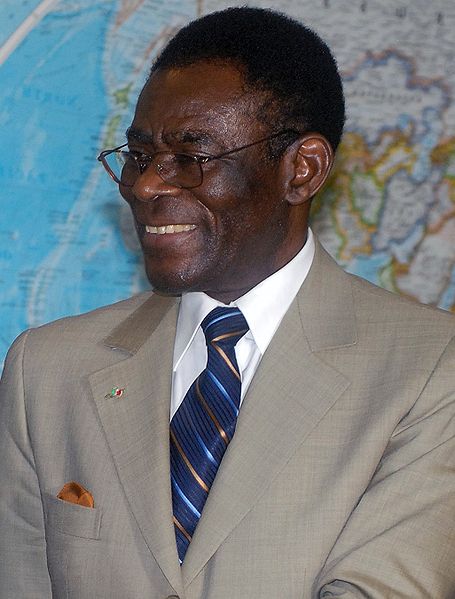 Last week I discussed the inherent problems associated with the extraction industry. Now I ask, do companies and governments play a role in exacerbating these problems? Although I manage the GfGD blog, in this instance I am blogging in a personal capacity, and the views expressed are my own, and not policy positions of GfGD as a whole. GfGD is an organisation with members from multiple backgrounds, and with a range of opinions.
Last week I discussed the inherent problems associated with the extraction industry. Now I ask, do companies and governments play a role in exacerbating these problems? Although I manage the GfGD blog, in this instance I am blogging in a personal capacity, and the views expressed are my own, and not policy positions of GfGD as a whole. GfGD is an organisation with members from multiple backgrounds, and with a range of opinions.
There have been some great acts of neglect by the oil industry; the most memorable recent disaster being the Gulf of Mexico oil spill. In the Niger delta, Shell quietly spill one Exxon-Valdez disasters volume of oil every year, prompting the amnesty campaign ‘own up, pay up, clean up’.
Large international companies are driven by profits and are governed undemocratically, yet they have as much influence as some governments and higher turnover than most national budgets. The government and oil industry are almost the same thing in Nigeria; “it’s hard to know where the government ends and Shell starts” (wikileaks).

Teodoro Obiang Nguema Mbasogo – President of Equatorial Guinea
Source: Agência Brasil
Oil is intimately linked with global politics. In Equatorial Guinea there was an attempt to overthrow the incumbent president, Obiang Nguema, in a military coup in 2004. There is some indication that mercenaries making personal profit from the oil industry may have been involved in this operation. Obiang is Africa’s longest standing unelected president, in a country with one of the lowest human development indexes. Although his departure could have been a positive thing, the oil industry could have benefited from the ensuing political instability. In unstable environments, corrupt governments will want to speed up production to take their share of the profits before their time in power is up, at the expense of the long-term stability of the national economy.
The global movement of aid also shows some remarkable links to the oil industry. French foreign aid to Gabon dropped from $100 to $20 million per year in 1997, the year that Gabon’s oil production peaked. We would expect aid to be inflating over this period to prop up the economy on its come-down from the oil high, but perhaps there is sometimes more to international aid than providing unbiased support for honest development.

Confrontation between police and stiking miners at the Lonmin operated mine. Source: Critical Legal Thinking
Some mining companies also stand accused of fuelling war and suppressing development. Coal India have a dismal track record; 205 of their workers lost their lives in 2010 alone and many of their mines operate without an environmental permit. Lonmin operate mines in South Africa, and urged the Mining Ministry to take action against striking miners earlier this year, leading to the massacre of 44 of their own workers. See my previous post on the situation in the Democratic Republic of Congo for an example of the link between minerals and the ongoing war.
Most people think of large international corporations as more than the sum of their parts, independent of the people that work for them. This absolves the employees of their personal responsibility and leads people to believe they are too big to challenge. It is important to remember that oil companies are only human. However, when working for a large company, no matter how good your intentions, it is hard for one individual to force change. Asking questions and whistle blowing can result in the swift ending of a career, and the pressure to conform is immense.
As consumers, we exert some control by choosing where to spend our money. The oil industry is unique though as there is little diversity or choice. Even a permit to search for oil costs millions of dollars, it is not possible to play the game unless you are a big player. There are a small number of large companies all providing similar services, and so consumers have no choice but to hand over money at the petrol station.
Big oil states have the potential to make large profits from their land, but instead the profits tends to trickle through an underground system, eventually winding up in the account of some wealthy individual living in an offshore tax haven. Africa’s natural resources are worth far more than the all of the foreign aid pumped into the continent. If the finances were managed fairly and responsibly, many African economies could be free from the need for foreign aid. Despite the employees and the consumers having good intentions, the system is set up in such a way that it invites corruption, tax avoidance and an unfair deal for the people, particularly in developing countries. We need an international agreement to introduce regulations on the industry that reduce the pressure on companies to put profits before people in order to compete effectively with each other.
The details of current oil contracts are highly secretive, but for the old ones now made public there are indications that some companies allowed developing countries to take a raw deal. In Equatorial Guinea, the government took an unusually low share of the oil profits as tax. This is because the government did not have access to trained lawyers and geologists to advise them during negotiations. The secrecy surrounding oil contracts meant they were not able to make comparisons to see what would be a reasonable demand. More transparent contracts would help us to ensure both a fair deal for developing countries and to trace the flow of oil money through the global economy – to ensure it stays as taxable income. The Publish What You Pay campaign has been set up to try and promote greater financial transparency in the extraction industry.
Oil and minerals create powerful ripples through the global economy. Their influence cannot be overlooked in any sphere – including aid and international development. A lot of the problems associated with oil and mining are inherent to the very nature of the industry, but the way that they are managed exacerbates some of these problems. The problems associated with the extraction industry are bigger than just the oil and mining companies, however. The finance industry, politicians, and private investors are all just as involved in the movement of money that’s churned up from the geological record. My personal conclusion is that working for an oil or mining company as a geologist does not make you unethical, but it doesn’t do anything towards solving these problems either, and may make you less likely to join campaigns, support honest research and make a positive change.
Recommended reading
For a more in depth discussion of many of the ideas in this article, I recommend reading “poisoned wells” by Nicholas Shaxson.
This article in the Guardian discusses the ‘resource curse’ in Africa, and the need for greater transparency.
The opinions expressed here are Rosalie’s own, and not an official policy position by GfGD. We understand that our readers will have different opinions about these issues, and value the freedom of discussion that is so important to our culture. We always welcome debate about scientific and political issues – and readers can leave comments using the box at the bottom of the article.

Alex
Just to point out, the worst case of negligence by the oil industry to date is the ensuing mess caused by the Lusi mud volcano.
http://news.sciencemag.org/sciencenow/2011/02/indonesias-infamous-mud-volcano-.html
http://earthobservatory.nasa.gov/IOTD/view.php?id=42526